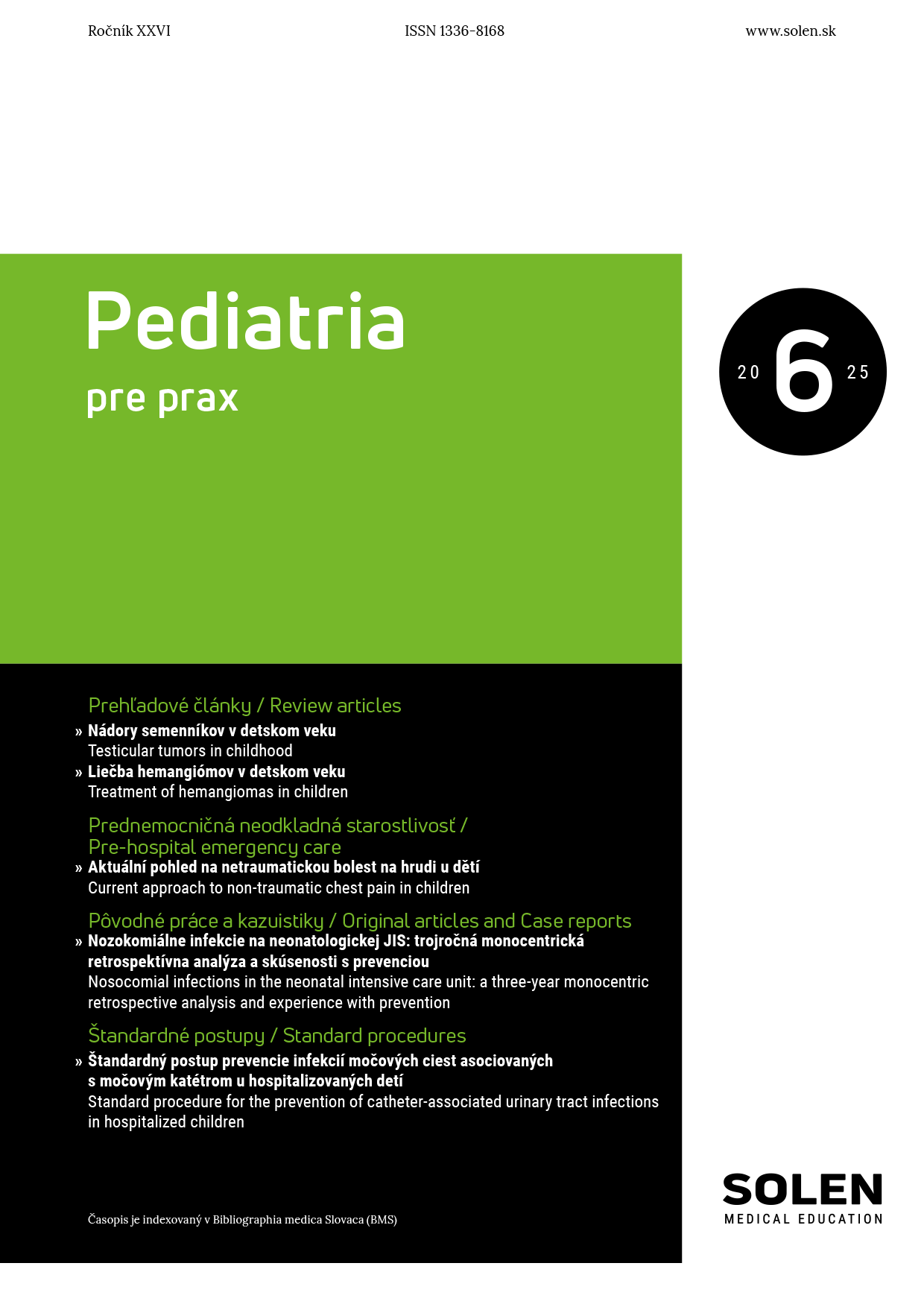Praktické lekárnictvo 3/2023
Lekárenská starostlivosť a manažment obezity
PharmDr. Laura Adamkovičová, Mgr. Kristína Csicsolová, doc. PharmDr. Daniela Mináriková, MSc., PhD.
Obezita je chronické ochorenie, ktorého prevalencia v posledných desaťročiach dramaticky stúpa. Napriek tomu, že príčiny vzniku obezity sú rôzne, obezita je preventabilná a dá sa liečiť. Hlavným cieľom našej práce bolo zistiť záujem ľudí využívať služby na prevenciu, diagnostiku a terapiu obezity a nadhmotnosti, ktoré by mohli byť v budúcnosti potenciálne ponúkané lekárnikom alebo farmaceutickým laborantom v rámci lekárenskej starostlivosti. Výskumu sa zúčastnilo 608 respondentov. Z nášho výskumu vyplýva, že so stúpajúcim vekom respondentov stúpalo aj ich BMI a so zvyšujúcim sa BMI stúpala aj prevalencia chronických ochorení. Iba 3,5 % zo všetkých respondentov by požiadalo o pomoc pri chudnutí lekárnika alebo farmaceutického laboranta. Prieskum ukázal, že ľudia vo väčšom počte nevyužívajú služby ponúkané lekárňami a výrazný počet respondentov o týchto službách nevedel. 59,0 % respondentov v prieskume uviedlo, že by súhlasili, aby v budúcnosti špeciálne vyškolený lekárnik alebo farmaceutický laborant v lekárni poskytoval služby súvisiace s kontrolou telesnej hmotnosti, okrem prípravy jedálnička a plánu fyzickej aktivity. Faktory, ktoré pokladali respondenti za najdôležitejšie, aby navštívili lekáreň za účelom manažmentu telesnej hmotnosti (MTH), boli profesionálny, ľudský a priateľský prístup lekárnika, súkromie a cena služieb. Ako najväčšie prekážky respondenti vnímali nedostatok súkromia v lekárni, nedostatočnú odbornosť lekárnika riešiť telesnú hmotnosť a nedôveru v motív lekárnika. Ľudia majú záujem o MTH v lekárni, ale je potrebné doriešiť vzdelanie farmaceutov v tejto oblasti, priestory, prístroje, financovanie a iné.
Kľúčové slová: obezita, nadhmotnosť, lekárenská starostlivosť, lekárnik, manažment obezity
Pharmaceutical care and management of obesity
Obesity is a chronic disease, the prevalence of which has increased dramatically in recent decades. Despite the fact that the causes of obesity are different, obesity is preventable and can be treated. The main goal of our work was to find out people‘s interest in using services for the prevention, diagnosis and therapy of obesity and overweight, which could potentially be offered to pharmacists or pharmaceutical laboratory technicians as part of pharmacy care in the future. 608 respondents took part in the research. Our research shows that as the age of the respondents increased, so did their BMI, and as BMI increased, so did the prevalence of chronic diseases. Only 3.5% of all respondents would ask for weight loss help from a pharmacist or pharmaceutical laboratory technician. The survey showed that a large number of people do not use the services offered by pharmacies and a significant number of respondents did not know about these services. 59.0% of survey respondents said they would agree that in the future a specially trained pharmacist or pharmaceutical laboratory technician would provide services related to weight control in the pharmacy, in addition to meal preparation and physical activity planning. The factors considered most important by the respondents to visit a pharmacy for the purpose of body weight management (BWM) were the pharmacist‘s professional, human and friendly approach, privacy and the price of services. The respondents perceived the lack of privacy in the pharmacy, the pharmacist‘s lack of expertise in dealing with body weight and distrust in the pharmacist‘s motive as the biggest obstacles. People are interested in BWM in the pharmacy, but the education of pharmacists in this area, premises, equipment, financing and others need to be resolved.
Keywords: obesity, overweight, pharmaceutical care, pharmacist, obesity management

















